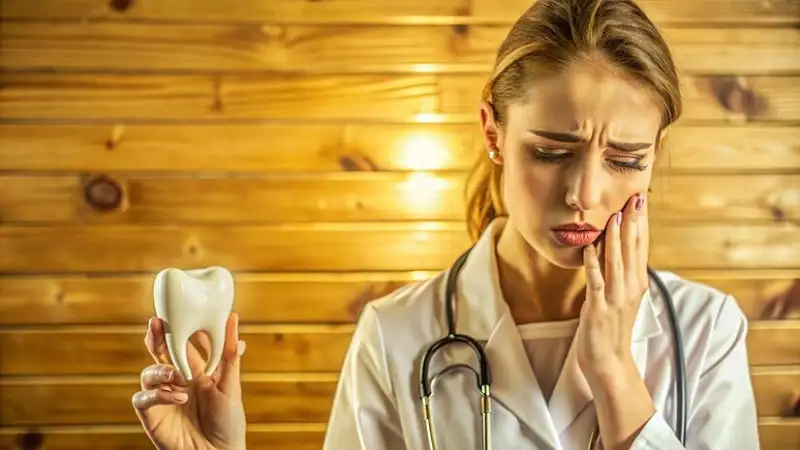How to Maintain Oral Health During Stressful Times
Stress is an unavoidable aspect of life. It can be exhibited through physical, emotional, mental, or psychological means; however, one factor that is most often neglected is the effect on one’s oral health. If your teeth have ever hurt from clenching them in response to tense situations, then it is understandable you are not alone. There are more factors connecting stress and oral health than we would like to admit and the truth is management of such is very demanding. In this paper, I will provide you with useful techniques and tips that will enable you to maintain good oral health even under intense stress.
Stress and Its Effects on Oral Health:
Stress is a stimulating factor that has many effects on a person’s health and well-being including oral health. Stress activates the body to produce more of the hormone cortisol which has side effects that lower our immunity and can contribute to oral health concerns. Some examples of oral issues aggravated by stress are as follows:
- Bruxism or teeth Grinding: In most cases, stress leads to extended stress teeth grinding, especially in night sleep. This causes tooth wear, pain in the jaws, and headaches as well.
- Gum Diseases: Stress also leads to fluctuations in the levels of the hormone cortisol in the body which can be greatly stressful to these areas. Because of this, gum infections become easier to establish and fight off any normal defenses from the body.
- Canker Sores: Such painful sores usually develop during stress periods, which makes them especially annoying.
- Dry Mouth: More stress can cause less saliva production leading to a dry mouth that can put woe on biting cavities and infections.
-
Acknowledge Stress and Learn to Cope
The first defense in the prevention of oral health issues is dealing with the issue. Here are several strategies that can help in controlling stress.
- Exercise Regularly: Alongside obtaining or maintaining a healthy body weight, physical activity has been the best prescription for stressful situations. Exercise more than 30 minutes for most of the days in a week. It could be going for a brisk walk, attending a yoga class or even working out in the gym; all exertion helps release endorphins and hormones in the body which are mood elevators and Violence deterrents.
- Mindfulness and Relaxation Skills: Stressors often trigger rapid heart rates, which can be controlled by measures like deep breathing, muscle relaxation and meditation. You can achieve a great deal by simply devoting a few moments of your day to mindfulness.
- Remain Calm and Organized: Stress is always a result of feeling overburdened. To prevent stress, one should keep a to-do list, define possible objectives, and break down tasks into simple ones.
- Get Professional Support: Consult mental health practitioners whenever stress becomes too much to tolerate. They will provide aid and guidance to efficiently assist you.
-
Stick to an Oral Hygiene Routine Regardless of External Conditions
It is also important to stick to an oral hygiene routine even when feeling anxious or stressed. Here’s what you should do:
- Brush Twice a Day: Each time you should brush for at least two minutes, preferably using fluoride toothpaste and a soft toothbrush. Brushing of teeth shall be done each morning and night before sleeping to get rid of plaque and cavities.
- Floss Daily: Flossing removes the same plaque and food that tooth brushing misses and that which sticks in between and beneath the teeth, which is not intended for a toothbrush. Flossing once a day will also suffice to maintain healthy gums and stave off tooth decay.
- Use Mouthwash: The former is effective against plaque and bacteria whereas the latter is safe from cavities. In your routine, mouthwash should be rinsed once or twice a day.
-
When Teeth Grinding: Clean Up After Work the Same
If you think that teeth grinding may be one of the symptoms of excess stress, bear in mind the following:
- Night Guards: If left untreated, grinding can cause damage to the teeth and jaws. Night guards are professionally fitted mouthguards used at night to reduce teeth grinding. Visit your dentist to have a well-fitted night guard that will prevent your teeth from wear and tear and even reduce pain around your jaws.
- Stress Management: It has been noted earlier that alleviating causes of stress such as treatments and therapies for sleep through stress management measures, would maintain the chances of developing teeth-grinding habits lower.
- Jaw Exercises: Easing the jaw and practicing some of the exercise routines or stretching the jaw may at times help minimize the overactivity of the jaw muscle body. Specialists recommend various regimes of exercise, and dentists resort to any therapist with you.
Keep Yourself Hydrated
Adequate water intake is important in maintaining good oral health or care, especially during times of stress because of the unbearable dry mouth that one can experience. This further stimulates the production of saliva which is quite important in the clearing of food debris and neutralizing acids.
Make Snacking Healthily a Priority
Caving into stress responses often means leaning into some candies or unhealthy treats which increase our oral problems. Make healthy choices on these snacks that will benefit your mouth a great deal:
Raw Fruits and Vegetables: Crunchy fruit snacks like carrot sticks, celery, and cucumber spears are natural toothbrushes for your teeth.
Wet Fruits: Apples and pears are also great sources of water aiding saliva production.
Healthy Snacks: Nuts like almonds, walnuts, and sunflower seed are nutritional snacks that substitute unhealthy sweet treats.
Regular Dental Check-ups
It is very important to keep regular dental appointments as well as treat rising oral health problems. Even when feeling stressed out, avoid staying away from dental check-ups. Your dentist can help you maintain your oral health, they can provide a cleaning of your teeth for you and take care of any issues that may be arising before they turn out to be problems.
Avoid Stress-Related Practices
Some practices brought about by stress are screwy to your dental well-being. They include:
Smoking: Stress causes some people to increase the frequency of their smoking which is a risk factor for getting gum diseases, tooth decay or even cancer of the oral tissues. If you smoke, get help to stop.
Intake of High Levels of Caffeine: A cup of coffee can serve its purpose and assist in making you go through a stress-laden day with ease, however caffeine in excess will bring about dry lips and possible increased levels of plaque. Soothe your excessive caffeine intake with water and a healthy lifestyle.
Stress is part of everyday living but that does not mean that it has to affect the health of your mouth and teeth. With concern, you can address the stressors, and their effects on the body and practice oral hygiene, therefore, no matter the problems during the period, it is possible to have a healthy and beautiful smile. Note that improving your oral health involves more than brushing and flossing your teeth. It also involves managing stress and making healthier lifestyle choices.
To learn more about how to take care of your mouth in stressful times, go to Dr.Gobran. However, these measures are useful for dealing with tough times without compromising the health of teeth and gums.






